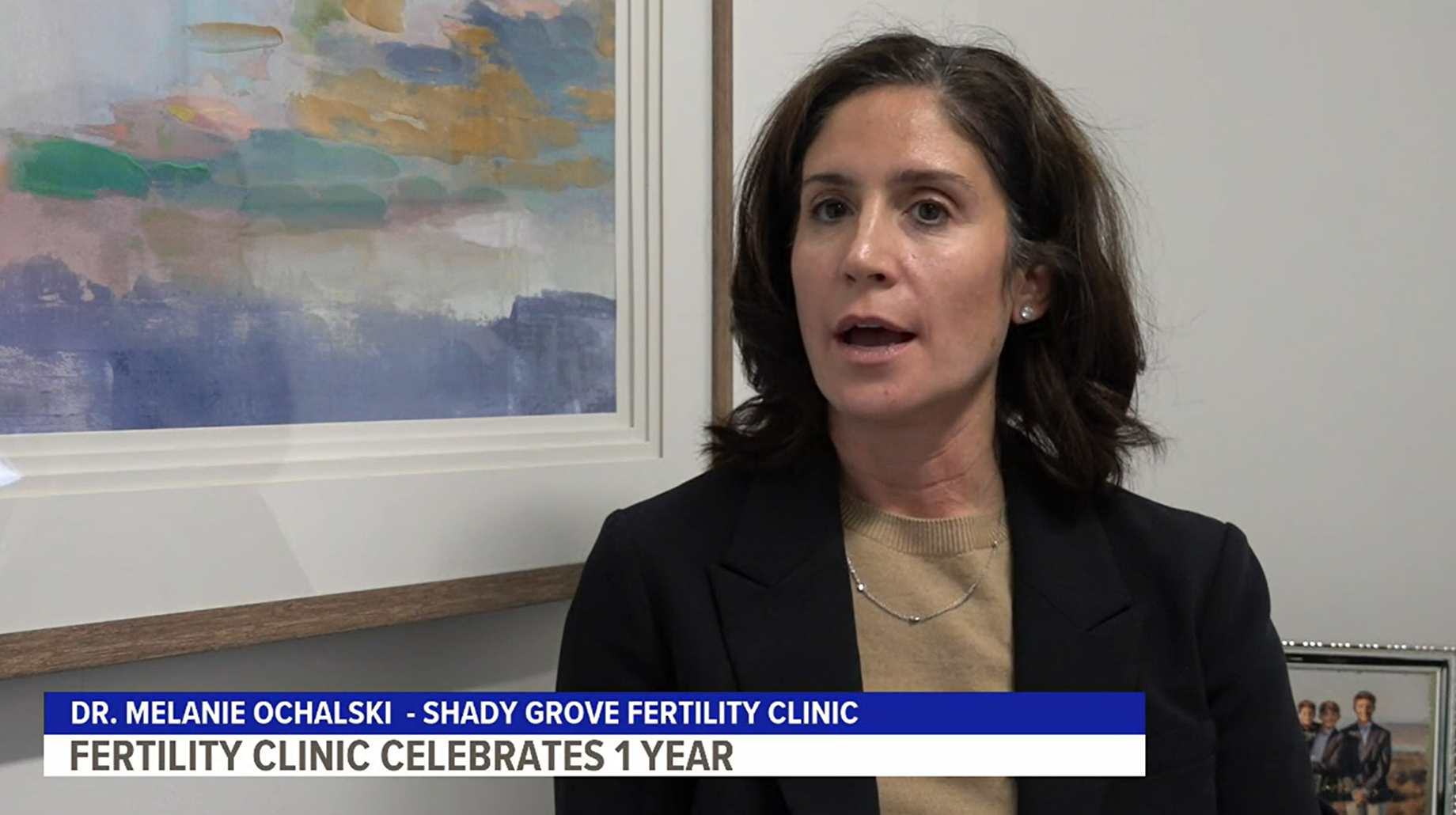Many couples struggling to get pregnant have heard this from friends and family:
“If you stop worrying about it so much, it will happen.”
“If you could just relax more, you could get pregnant.”
“If only it were that simple!” says Dr. Jeanne O’Brien of Shady Grove Fertility’s Rockville, MD office. “This idea that stress causes infertility is such a pervasive misunderstanding in our society, and it can lead couples to blame themselves for something they have no control over.”
There is no evidence that stress causes infertility or that reducing stress will get you pregnant. “There may be some effect of stress on the outcomes of fertility treatment, but the research is very inconclusive,” says Dr. O’Brien.
What is clear, however, is that couples under a lot of stress stop fertility treatment sooner than those who are managing their stress. “So, in that sense, stress does have an effect on success because a couple may quit before they become pregnant,” she adds.
The success rates show that if a couple is willing to keep trying and stay open-minded about adjusting their treatment protocol, fertility treatment can work. “Almost all our patients can become pregnant if they stick with it,” says Dr. O’Brien. “But starting treatment can add a whole new layer of stress to already stressful lives. So, it’s really important for patients to be aware of their stress level and do what they can to manage or reduce it,” she adds.
Persistence Pays Off
In European countries like the Netherlands, the government health service pays for all fertility treatment. Even though patients in these countries don’t have the financial burden of paying for treatment, a study showed that 62 percent dropped out of treatment after three cycles of IVF treatment. The reason is usually related to stress.
At Shady Grove Fertility, approximately 50 percent of couples who do IVF treatment will get pregnant on their first cycle. That’s an amazingly good success rate, but if you are not one of them, the negative result can feel devastating and prompt you to wonder why you went through it all.
“Treatment is time-consuming and emotionally draining. For patients who don’t have a support system or a strategy for managing their stress, the thought of doing another cycle can seem like too much to handle. Some of these patients will decide not to continue,” says Dr. O’Brien. “That’s disappointing for me because I know that if we were to keep trying, we would, most likely, have success in the end.”
Shady Grove Fertility’s success rates show that persistence with treatment does pay off. In women 35 years or younger who didn’t conceive on the first try, 50 percent of those will become pregnant with another cycle of IVF, and another 30 percent of those remaining will have success on the third cycle, making the cumulative results for women on their third IVF cycle 75 percent.
The small percentages of patients who are unsuccessful after several IVF cycles may move on to a more advanced treatment such as donor egg. We mostly find women of advanced reproductive age moving on to donor egg treatment, usually women in their very late 30s and early 40s. In most cases, their chances of becoming pregnant then jump back up to very high levels. Patients using donor eggs at Shady Grove Fertility can have a 65 percent chance of becoming pregnant per cycle.
“Since I know that managing stress can make the difference for my patients, in terms of helping them to stick with treatment until they reach their goal, it’s something I think about from our very first meeting,” says Dr. O’Brien. “If I think their stress level is high coming into treatment and I know treatment will add stress, I suggest a variety of resources that might help them control their stress levels.”
Managing Your Stress
We have all read numerous articles about the stress-reducing benefits of exercise, socializing with friends, and taking time for ourselves. These strategies can work for people in fertility treatment, but it can also be really helpful to get support that specifically addresses the challenges of treatment.
To this end, Shady Grove Fertility offers a number of options to provide support to our patients:
Facebook Community: Shady Grove Fertility’s Facebook page is a vibrant and active community of over 23,000 people supporting one another through treatment. The ease of accessing this supportive community, and the ability to participate on your own schedule and timeframe makes it an ideal place to get support.
Support Groups: Monthly support groups are offered to patients on a number of topics from General Infertility Support to our Donor Egg Recipient Support Group. These groups, which are run by counselors and social workers who specialize in the emotional aspects of infertility, are free-form discussions where patients can share what’s on their minds related to their treatment. They offer a chance to connect with other patients and hear what has worked for them. See the events calendar for all support group listings.
Individual and Couple’s Sessions: Counseling sessions for individuals and couples offer a more personalized experience where coping strategies can be tailored more closely to a patient’s needs. These sessions provide a safe and confidential space where you can talk about aspects of your experience you may feel uncomfortable sharing in a group setting.
Complementary (Holistic) Medicine: Shady Grove Fertility’s Wellness Center provides complementary (holistic) therapies such as acupuncture, massage, and nutrition counseling. Their services do not replace advanced reproductive technology, but rather support the patient before and during treatment. The Wellness Center staff are holistic practitioners who specialize in fertility therapies and have been trained by medical infertility specialists. Services vary by location and bundled pricing packages are available.
RESOLVE: The National Infertility Association: Shady Grove Fertility also partners with RESOLVE, a national advocacy and support organization for couples with infertility. While RESOLVE’s mission is to lead efforts to increase public education around infertility, they also provide free support programs in communities nationwide.
Online Resources: Shady Grove Fertility’s website and blog are valuable tools that provide patients with a variety of resources from blogs, articles, videos, and more. Our goal at Shady Grove Fertility is to provide our patients with the tools and resources to reduce the stress associated with infertility from a medical, emotional, and financial perspective.
Stay Focused on the Goal
Managing the stress that comes with infertility allows couples to experience the positive and hopeful aspects of fertility treatment and to stick with it. After all, every step in treatment is one step closer to your goal of having a baby.
“I want all of our patients to be aware of their stress level and to find support, because I want all of our patients to have success,” says Dr. O’Brien. “And I want them to feel hopeful about treatment, because there is a good reason to be hopeful.”
For more information about stress and infertility or to schedule an appointment with one of our physicians, call 888-761-1967 or complete this online form.






